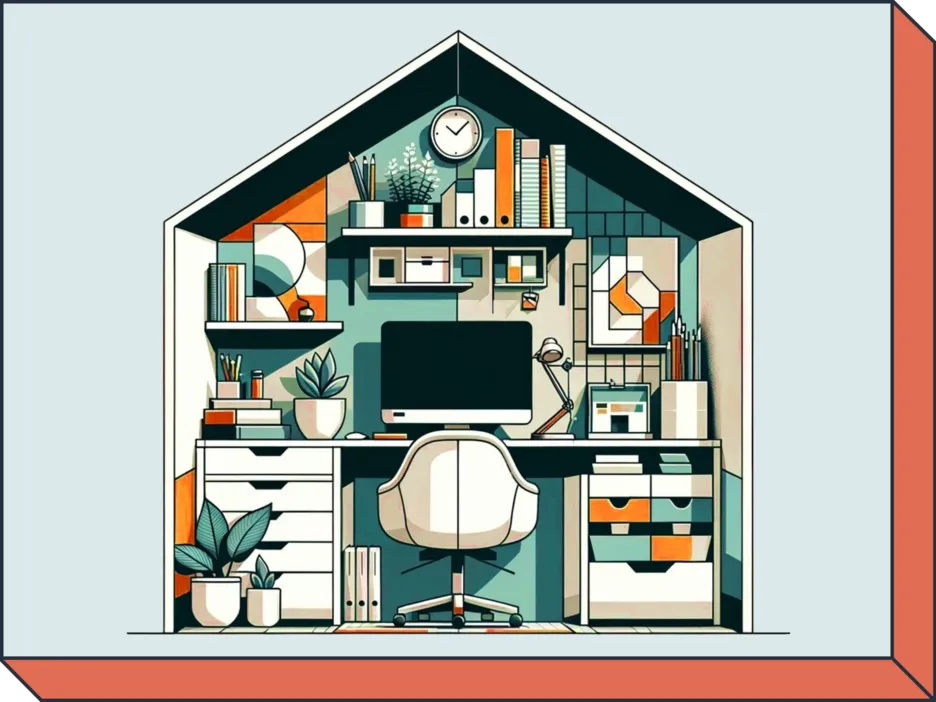IPD Project: Tiny Homeoffice

Tuesdays 13-18
Kick-Off 16.4. 11:00
Research Presentation:
Mid-term 11.6.
Final 17.7. (Wednesday!) 15:00
In this design project, we will explore the possibilities of furniture and interior design to improve people’s well-being in very small 'working from home’ environments. Working from home (WfH) has become an established and accepted work mode in many industries since the pandemic. Also in universities, online learning provides students and teachers with the possibility to study or teach from home. This situation provides many advantages, such as reduced commuting time resulting in a reduced carbon footprint or increased inclusion of single parents or people with disabilities into the work or study environments. But there are also drawbacks. Social isolation can lead to mental problems. And the displacement of private areas at home by work-related infrastructure can lead to a reduced feeling of comfort and wellbeing, especially in small apartments for low-income target groups, such as students and young families.
We collaborate with the international media platform Never Too Small (NTS Homepage, YouTube) which will provide us with insights into the current state of small living space design and might feature selected project results in their upcoming global NTS magazine.
You will engage with the following relevant topics and design activities:
- Secondary research: existing solutions: folding furniture, tiny house movement etc.
- Design research with extreme users: interviews and observations with people living/working in very small environments (prisons, astronauts, capsule hotels, etc.)
- Scientific research: architectural psychology and neuroaesthetics: environmental strategies for relaxation and stress reduction
- Gestalt principles for making a space appear larger (optical illusions)
- Experimentation with space-saving design principles (folding mechanisms, Origami, dual-use principles, etc.)
- Sketching, illustrating, and prototyping of spatial concepts and/or furniture solutions
As a result, you will design, prototype, and implement a testable spatial solution for a very small home office that promotes wellbeing and reduces stress.
Participants get access to the chair‘s 'creative space lab‘ to prototype their solutions in a realistic environment. Teamwork is optional but highly encouraged.
The separately offered excursion to the Milan Furniture Fair (19.-22.4.) can be used for intense research into the current state of small and flexible furniture (project participants have priority for the limited places). Participation is optional but highly recommended. Additional 3 ECTS can be obtained.
Project includes IPD Project Seminar: Tiny Homeoffice
Tuesdays, 11:00
Kick-Off 16.4.
In this seminar you will learn the required theoretical foundations for the IPD Project "Tiny Homeoffice". We will cover topics such as design and user research, architectural psychology, optical illusions, neuroaesthetics, folding mechanisms and origami, This seminar is integrated into the IPD Project and limited to the project's participants only.